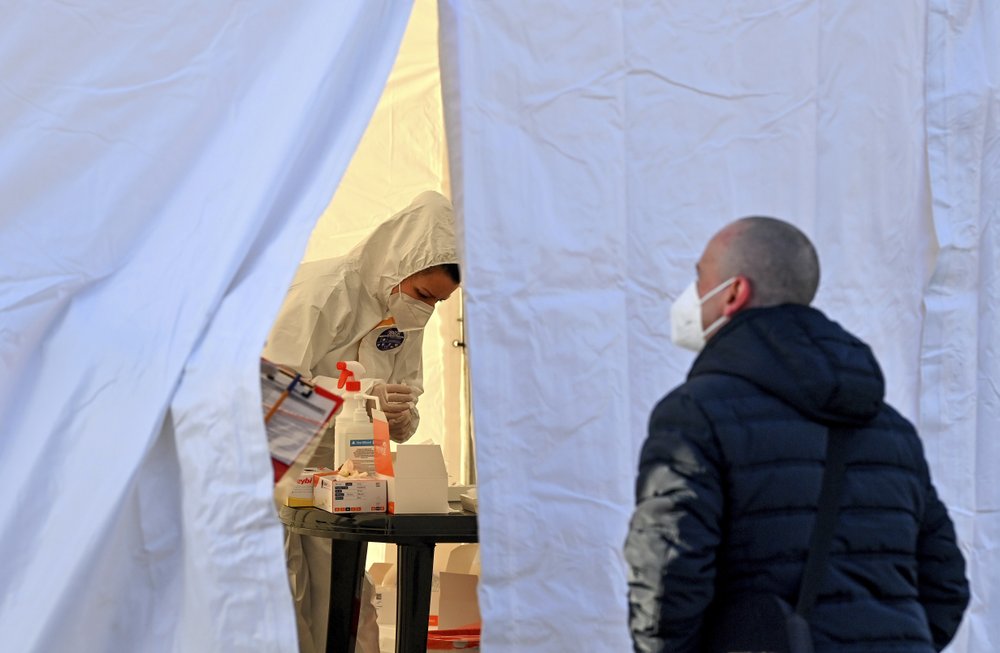

Poland recorded its highest daily number of new coronavirus infections Wednesday as hospitals buckle under a new surge. Hungary has the highest per capita death rate in the world. And Romanian doctors are working around the clock and having to decide who does — and doesn’t — get a bed in an intensive care unit.
The coronavirus pandemic is unleashing enormous suffering as infection rates rise across central Europe even as the Czech Republic and Slovakia — recently among the worst-hit areas in the world — are finally seeing some improvements following tight lockdowns.
In Poland, officials say this “third wave” of the pandemic is driven by the highly contagious virus variant first detected in Britain, which now makes up most of the new cases. The country’s vaccine rollout is happening far too slowly to hold back this powerful wave of illness and deaths.
With 38 million people, Poland announced 575 new deaths on Wednesday and nearly 30,000 new infections — surpassing a record for new cases set in November.
Polish Prime Minister Mateusz Morawiecki, warning that the worst is yet to come, said the country will have even stricter restrictions for a two-week period before and after Easter. This comes with the country already in a nationwide lockdown that has closed nonessential shops and sent all school children into remote learning.
Poland’s health care system is under greater pressure now than at any time in the pandemic. Polish media this week have reported on hospitals so overwhelmed that they are forced to put extra beds in corridors. Maternity wards have been suddenly turned into COVID-19 wards, forcing women to change plans for where they will be giving birth. At least one hospital director has banned staff from taking vacations.
Ambulances in Poland have been waiting for hours in front of hospitals to unload their patients or have had to transport patients to distant facilities.
Morawiecki said younger people — those under 50 and even some under 40 — are making up a larger share of those hospitalized than ever before. Among them now is 49-year-old Warsaw Mayor Rafal Trzaskowski, who unsuccessfully challenged President Andrzej Duda in an election last year.
In Hungary, a surge of infections has produced the highest death rate per 1 million inhabitants in the world in recent days, and daily record-breaking numbers of COVID-19 patients being treated in hospitals has led to a severe strain on the country’s health care system.
That comes even though Hungary is among the European Union countries with the highest vaccination rates, thanks to its reliance on Chinese and Russian vaccines in addition to those approved by the EU.
Facing a lack of qualified medical staff to treat the nearly 12,000 COVID-19 patients now hospitalized, Hungary has authorized medical students to come in to help. Some Hungarian hospitals have also sought volunteers to assist nurses and doctors in COVID-19 wards, giving training sessions to those without medical backgrounds.
“The majority of hospital wards have become COVID wards, intensive wards are exponentially overloaded, operating rooms have shut down and their ventilators are occupied by COVID patients fighting for their lives. We’ve run out of available health care workers and the hospitals are looking for volunteers to help,” the Hungarian Chamber of Doctors wrote.
In Romania, record high numbers of patients in ICU units have been recorded on consecutive days this week.
“This is the most pressure we’ve felt,” says Roxana Patulea, a 28-year-old ICU doctor at the Ploiesti Emergency Jupiter Hospital and Bucharest University Emergency Hospital.
“Despite the vaccine, there are many more patients than during the second wave and there are no beds in ICU. It’s sad — often we have to choose patients according to the criteria of severity or age,” she told The Associated Press.
Patulea said she and her colleagues have been working 24-hour shifts during this surge, snatching bits of sleep in between night-time emergencies.
Meanwhile, infections have also soared in past weeks in many Balkan countries, which have responded by tightening lockdown restrictions. Health authorities warn that the systems are so overburdened and medical workers are so exhausted after a year of extreme pressure that patients are not receiving optimal care.
“The pressure on our hospital is huge,” said Dr. Tatjana Adzic Vukicevic, who runs a newly built coronavirus facility outside Belgrade. “It cannot be described with words, we are putting in extreme efforts.”